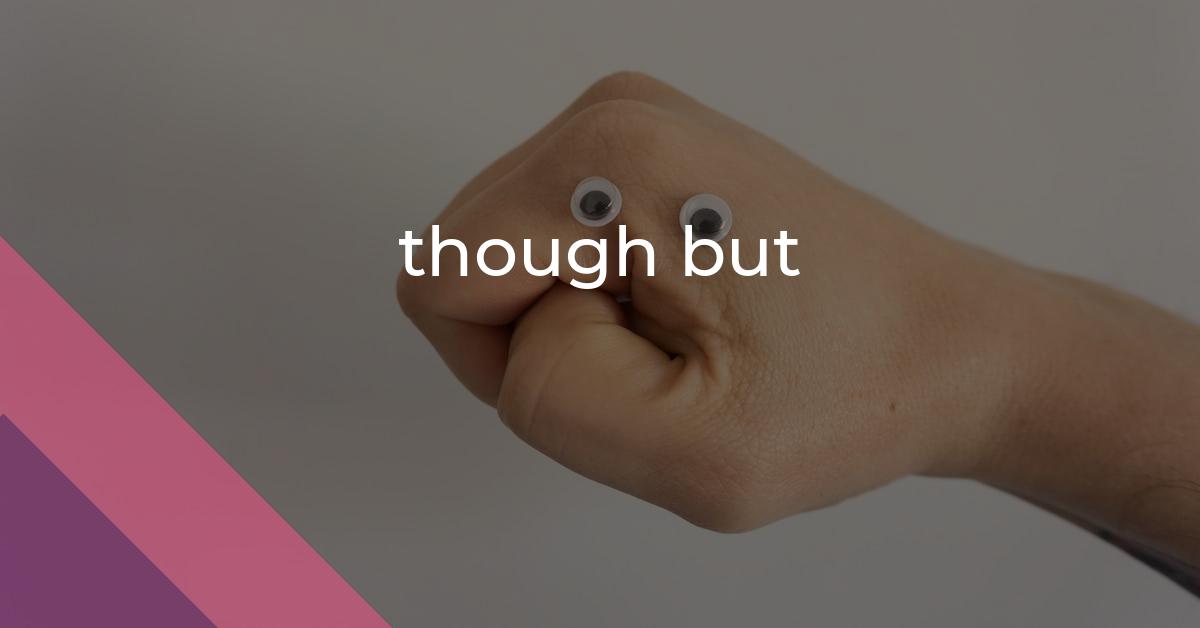though but: Idiom Meaning and Origin
What does ‘though but’ mean?
The idiom "though but" means however or nevertheless, indicating a contrasting or unexpected element to a situation or statement.

Idiom Explorer
The idiom "up against it" means to be facing a difficult or challenging situation where there are few options or resources available. It signifies being in a tight spot with little or no room for maneuvering.
The idiom "two sides of the same coin" means that two things appear different, but are actually closely related or connected.
The idiom "tough break" means experiencing a difficult or unfortunate situation, often through no fault of one's own.
The idiom "toss-up" means a situation where it is difficult to determine or predict the outcome. It refers to a situation that is equally likely to result in either of two outcomes.
The idiom "to all intents and purposes" means essentially or practically. It is used to emphasize that something is virtually true or almost certain.
This idiom, "thus and so," is used to describe a way of doing things or a specific method to achieve a desired outcome. It emphasizes the idea of following a particular order or procedure.
"Think twice" is an idiom that means to carefully consider a decision or choice before acting upon it.
The idiom "then and there" means immediately or right away, without any delay or hesitation. It is often used to emphasize the urgency or promptness of an action or decision.
The idiom "then again" is used to introduce a contrasting or opposite viewpoint or idea. It implies a shift in perspective or a reconsideration of a previous statement. It is often used when acknowledging a different argument or point of view.
Deciphering the Puzzle
The idiom "though but" can be seen in various contexts and is often used in both spoken and written language. It is commonly used to indicate a contrast or contradiction in a statement. When "though" is used in this context, it serves as a conjunction that introduces a subordinate clause, while "but" functions as a coordinating conjunction that connects two contrasting ideas. The combination of these two words creates a distinct meaning that is specific to this idiom.
The idiom "though but" can be used in a wide range of situations to convey a contrasting thought or idea. For example, let's consider the related idiom "but then". This phrase is often used to introduce a contrasting or unexpected outcome. It adds a sense of surprise or twist to a statement or narrative. When used together with "though but", it can create a stronger emphasis on the contrast, making the statement even more impactful.
In addition to "but then", another related idiom is "but good". This phrase is commonly used to express a positive or successful result despite initial obstacles or challenges. When combined with "though but", it can highlight the resilience and determination of the subject, emphasizing their ability to overcome difficulties and achieve success.
Now, let's consider the idiom "in spite of". This phrase is often used to introduce a contrast between two opposing ideas or circumstances. It suggests that despite the presence of adversity or obstacles, something positive or unexpected occurs. When used in conjunction with "though but", it can further emphasize the contrast and highlight the unexpected nature of the outcome.
Another related idiom is "down but not out". This phrase is commonly used to describe someone who has faced setbacks or failures but remains resilient and determined. It implies that although the person may have been knocked down, they are not defeated. When combined with "though but", it can amplify the sense of resilience and determination, emphasizing the individual's ability to bounce back from adversity.
Lastly, there is the idiom "be that as it may". This phrase is often used to introduce a contrasting or contradictory point in a discussion or argument. It acknowledges a different perspective or opinion while still maintaining the speaker's stance. When used together with "though but", it can create a stronger contrast, emphasizing the speaker's clear position despite acknowledging an opposing view.
The idiom "though but" is a versatile phrase in the English language that is used to indicate contrast or contradiction. It can be found in various contexts and is often used in both spoken and written language. When combined with related idioms such as "but then", "but good", "in spite of", "down but not out", and "be that as it may", it adds depth and complexity to a statement, highlighting contrasting ideas, unexpected outcomes, resilience, and differing perspectives. The usage of these idioms allows for a nuanced expression of ideas and contributes to effective communication.
Example usage
Examples of how the idiom *though but* can be used in a sentence:
- She was exhausted from the long day at work, *though but* she still managed to cook dinner for her family.
- The movie received mixed reviews, *though but* it was still a commercial success.
- He is a talented musician, *though but* he lacks confidence when performing on stage.
More "concession" idioms
We missed the mark - nothing found.



